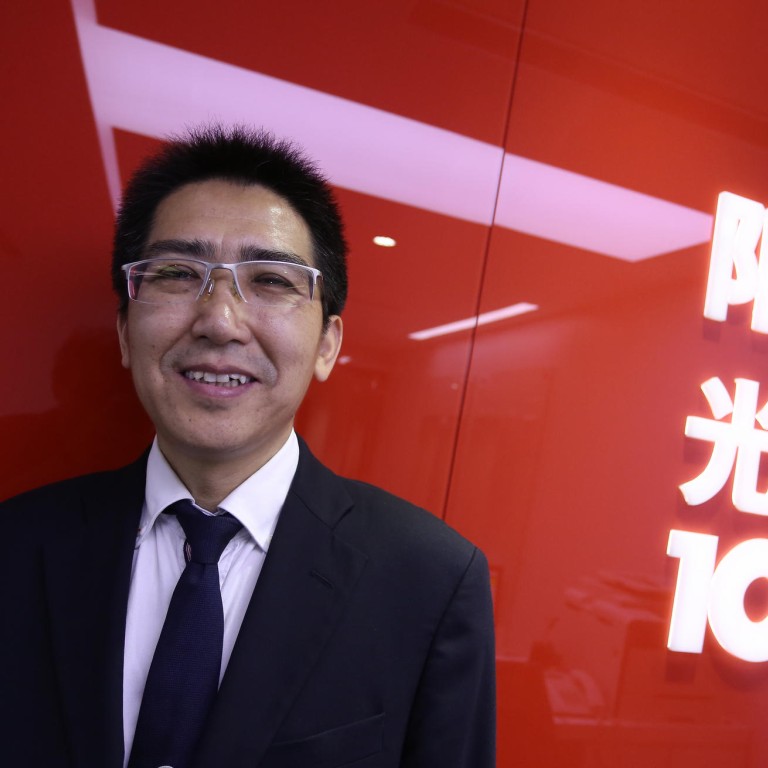
New | Mainland developer Sunshine 100 goes big on small projects
Developer to focus on street shops in lower-tier Chinese cities amid shift towards services
Small-cap developer Sunshine 100 China Holdings plans to focus on street shop projects in smaller mainland Chinese cities as the services sector is expected to play a bigger role in the economy, its chairman says.
Yi Xiaodi told the traditional department stores and shopping centres would find it hard to survive as anchor tenants closed their outlets in the face of competition from Taobao and other e-commerce shops.
However, the demand for places to eat, meet, relax and entertain children would see the opening of street shops close to where people lived, Yi said.
The "extension" of their kitchen, dining room, study and even living room areas to nearby street shops would then make it possible to cut the size of their expensive apartments, he said.
"China is suffering a housing glut, but there is still big demand for serviced apartments for young people," he said.
The sell-out of 3,600 small flats in a Chengdu project gave Yi confidence in replicating his strategy for other developments. In Chongqing and Changsha, he cut the residential space and increased the commercial area in his projects to lift the communities' living environment.
Such a strategy fits Sunshine 100 well as it cannot afford the risk of paying billions of yuan for a piece of land in top-tier cities such as Beijing, where it is based.
Little competition from rivals also enables it to buy land at acceptable prices, ensuring a profit margin of about 50 per cent, against the average of up to 30 per cent for housing developments.
Sunshine 100 has 28 projects under development across 20 cities including Chengdu, Changsha and Liuzhou. It bought three lots this year, in Chongqing, Lijiang and Yixing.
Last year, the company's contracted sales grew 25 per cent to 6.7 billion yuan (HK$8.48 billion).
What particularly excites Yi is the potential for services sectors such as tourism, education and catering to account for a higher proportion of the nation's gross domestic product, to more than 70 per cent from about 50 per cent now.
To him, that is another golden decade for those who can shift from residential to commercial property development and provide value-added services, although the transformation will not be easy.
In the short term, a government-encouraged start-up boom was creating demand for co-working space, boosting the sales and leasing of his projects, Yi said.
For example, he recently leased out unused space of more than 8,000 sq metres in Beijing to an incubator company founded by former China Vanke senior executive Mao Daqing.
Yi and Mao are now discussing the possibility of taking up bigger space in other cities such as Chengdu and Jinan.
Across the country, start-ups such as You+ International Youth Community are providing small or shared flats for leasing to singles and young couples while also providing co-working space for entrepreneurial tenants.

